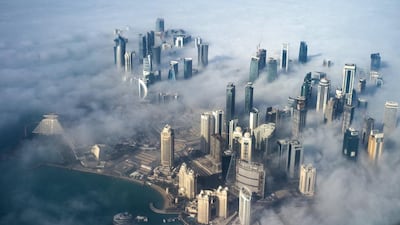In the two weeks that have passed since the UAE, Saudi Arabia, Egypt and Bahrain decided to cut diplomatic ties with Qatar, Doha’s response has been to try to change the subject. But what needs to happen is a change in behaviour.
No amount of deflection alters this inconvenient truth. For too long, the State of Qatar has allowed money to flow to terrorist organizations, including Al Qaeda affiliated groups, Al Nusra Front, Hezbollah, Hamas and the Muslim Brotherhood. It has provided shelter and support for known terrorists and directed its media assets to promote extremism.
This activity represents a clear and present danger to the stability and security of not only its neighbours, but the wider region and indeed anywhere the terrorists operate.
But please don’t take my word for it. For the last three years in succession, the US Treasury and State Department have consistently singled out Qatar for facilitating terrorist financing. In 2014, the US Treasury warned, “Qatar has become such a permissive terrorist financing environment that several major Qatar-based fundraisers act as local representatives for larger terrorist fundraising networks.”
The following year, the State Department asserted that nothing had changed, noting, “entities and individuals within Qatar continue to serve as a source of financial support for terrorist and violent extremist groups.”
Last year the picture was distressingly similar, with the Treasury concluding that Qatar “still lacks the necessary political will and capacity to effectively enforce their counter financing of terrorism laws.”
The pattern of behaviour is clear. Despite multiple promises, Qatar has failed to deliver and our patience has run out.
The time has come for the State of Qatar to follow through on the promises it made in 2014, when it signed the Riyadh agreement in response to our last determined effort to persuade the Doha Government to mend its ways: namely to cease acts of subversion and interference in the domestic affairs of GCC countries and other countries in the region; to prevent its media from being used as a platform for terrorist sympathisers and regional destabilisation; and forbid incitement by religious figures. Critically we want Doha to stop its revenue streams from being recycled to finance terrorist, extremist and related organisations.
However, despite Qatar’s pledges, unfortunately nothing has changed. When Qatar continues to allow extremist clerics to defend suicide bombings it should come as no surprise that it leads some people down a path toward evil, be they in Manchester, London, Paris or Kabul. Equally, when Qatar pays a billion dollar cash ransom to Hezbollah affiliates in Iraq and Al Qaeda affiliates in Syria, an uptick in terrorist incidents around the world is inevitable.
People should know that our decision to cut ties was taken with a heavy heart. It has consequences that its neighbours must bear alongside the State of Qatar. Our people have friends and relatives in Qatar, who have been affected by this. However, we all risk a much greater peril were we not to act.
Doha claims that the action taken by its neighbours is uncivilised. This is disingenuous. There is no blockade on the State of Qatar. The airport and seaports are open to the world, just not to bilateral trade with countries that, in the interest of national security, have suspended diplomatic and economic relations.
Yes, there is an impact to the measures we have taken, but it is one shared by all parties, and it pales in comparison to the human cost of the terror enabled by the State of Qatar.
We want nothing more than to resume normal, respectful and friendly relations with Qatar. A diplomatic solution is attainable, but the key to that outcome lies with the government of Qatar. Doha’s decision makers have a choice to make. They can lead their country to the fold of civilised nations, or continue down a destructive and isolating path. I truly hope they change course and choose wisely.
HE Dr Sultan Ahmed Al Jaber is Minister of State
This article first appeared on CNN.com

